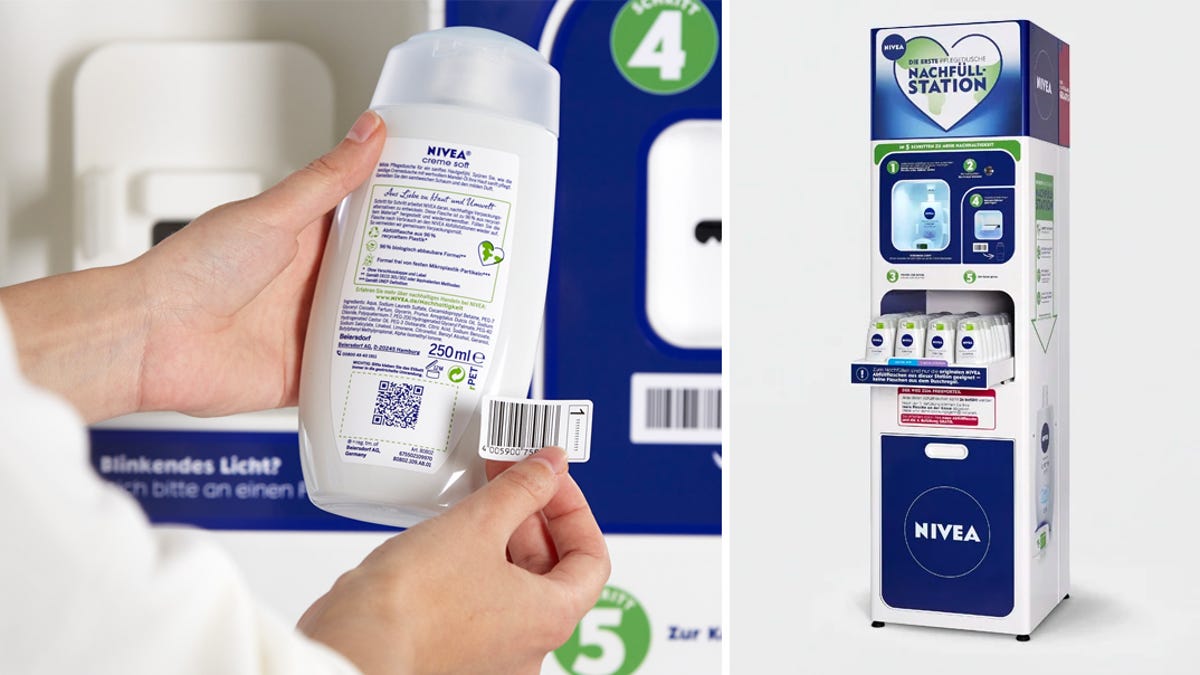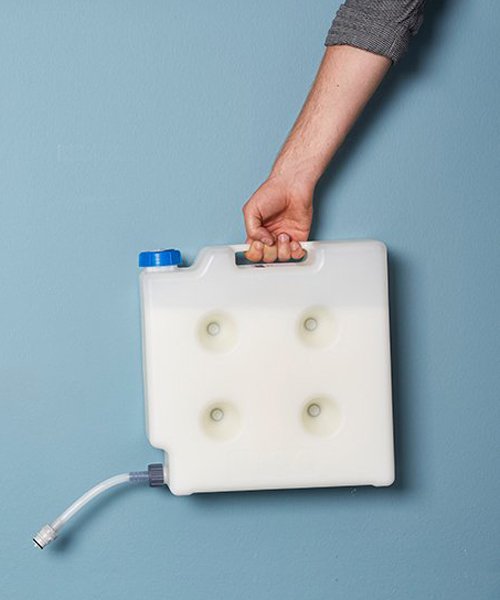
It’s now more apparent than ever that the conveniences of plastic packaging are being outweighed by the environmental impact of the problematic material. Ramping up recycling efforts and minimizing one-time-use plastics are critical to reducing plastic pollution, so Nivea is testing a new kiosk that refills soap containers several times before they’re sent off for recycling.
As important as recycling efforts are to reducing waste and pollution, it’s still a time-consuming and energy-hungry process. It’s why reuse is always promoted alongside reduce and recycle: why grind up an empty plastic bottle and send it back through the entire manufacturing process again when it can simply be refilled? Beiersdorf, the Germany-based manufacturer of skincare products, is hoping that users of its Nivea shower gel products will feel more encouraged to reuse the product’s packaging with an easy-to-use refill station currently being tested in the drogerie markt chain of Germain retail stores.
Using the kiosks sounds easy enough. Consumers start with an empty plastic Nivea bottle that’s filled by the machine—to introduce and familiarize them with the entire process—and a small label is printed out that can be adhered to the bottle for payment purposes. When empty, the bottles can be returned to the store and refilled up to three times, which is tracked by the barcodes that are printed out each time. After the limit is reached, customers are told to surrender the bottle for recycling (for hygiene reasons, it’s claimed) and take a new one. As a reward for their eco-conscious efforts, after a bottle is exchanged for a new one, the first filling is free.
Advertisement
There’s no details on whether or not Beiersdorf redesigned the Nivea bottles to make them more durable or easier to refill, but given the limited number of times a refill can be performed, presumably, it’s the same bottles you can already find on store shelves. As part of the pilot project, Beiersdorf will also be testing the bottles turned in for recycling and analyzing their condition to determine if the refill limits can be increased, or reduced, to keep consumers safe. These are bottles being used in showers and around bathtubs where dirty water is being splashed around and they’re often handled by dirty hands. While the refill process is non-contact, after three refills, the level of built-up bacteria on the bottles could be problematic.
If the testing of the Nivea refill station goes well, it could open the doors to countless other cosmetic products being distributed through a similar system. And, hopefully, eventually lead to machines that allow consumers to fill whatever container they prefer, taking plastics out of the equation altogether.
G/O Media may get a commission
